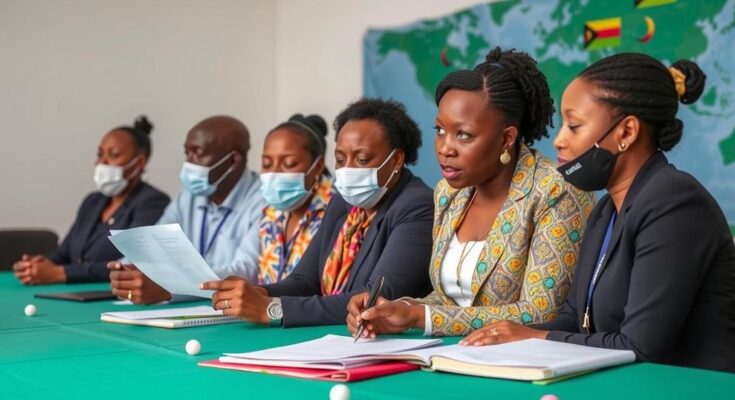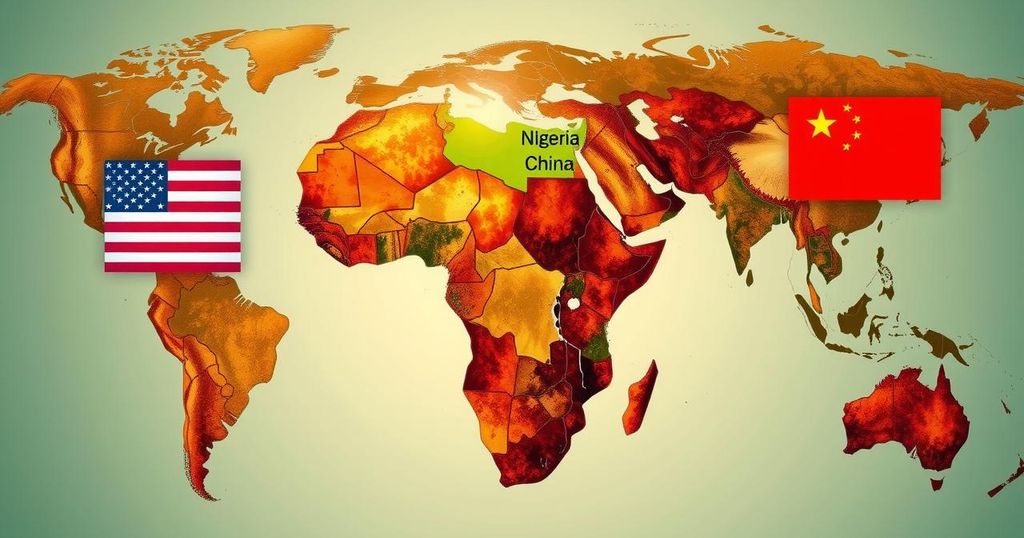Zimbabwe’s President Emmerson Mnangagwa announced SADC’s readiness to assist Mozambique amid post-election violence resulting in over 100 deaths. South Africa’s Ronald Lomola called for urgent dialogue to restore peace, reflecting the collective efforts of regional bodies to resolve the crisis following alleged electoral fraud by the ruling Frelimo party.
Emmerson Mnangagwa, the President of Zimbabwe and current Chairperson of the Southern African Development Community (SADC), has affirmed the regional bloc’s readiness to support Mozambique amid escalating post-election violence that has resulted in over 100 fatalities among protesters. This turmoil follows the elections held on October 9, where the opposition parties alleged electoral fraud. South Africa has also called for dialogue to restore peace and stability in Mozambique after the ruling Frelimo party was declared the victor by the Constitutional Council with 65% of the votes cast.
In light of these developments, South African Minister of International Relations and Cooperation, Ronald Lomola, publicly urged all involved parties in Mozambique to engage in constructive dialogue to mend the nation’s fractured political landscape. He expressed South Africa’s willingness to assist in facilitating this much-needed conversation. Similarly, Venancio Mondlane, who competed against Frelimo’s Daniel Francisco Chapo in the contentious presidential election, emphasized the importance of unity and protecting the interests of the community. He remarked, “If you want change in the country, a revolution, my brothers, let’s defend the shops of our neighbors, the companies of our neighbors, let’s defend them.”
Amnesty International’s Khanyo Farise condemned the government’s aggressive response to dissent, citing excessive force against peaceful protesters. “Since the outcome of the elections on Oct. 9, police have responded with excessive use of force against those who decide to express themselves… We have seen police using live ammunition, using rubber bullets and various forms of excessive force against protesters.”
Additionally, Borges Nhamirre from the Institute for Security Studies highlighted the urgent need for peace to reopen Mozambique’s ports, which are crucial for the region’s economy. He suggested that dialogue offers the most viable solution to the ongoing crisis, stating, “So, nothing is happening… The fastest way to solve this problem is dialogue. There is no alternative to dialogue.”
The calls for dialogue from both the opposition and regional organizations such as SADC and the African Union signal a cautious optimism that Mozambique’s situation may evolve towards stability and resolution.
The current unrest in Mozambique stems from the contentious elections held on October 9, where the opposition accused the ruling Frelimo party of electoral fraud after the Constitutional Council announced Frelimo’s 65% victory. Following the elections, protest violence erupted, leading to significant civilian deaths and a brutal government crackdown. The Southern African Development Community (SADC) and nations like South Africa are now intervening to foster dialogue and peace, recognizing the broader regional implications of Mozambique’s instability.
The escalating violence in Mozambique post-elections highlights the critical need for dialogue among conflicting parties. With significant regional players such as SADC and South Africa advocating for a peaceful resolution, there remains hope for restoring political stability. The urgent calls from both activists and political leaders suggest a collective acknowledgment that dialogue is essential to address the underlying tensions and to facilitate a peaceful transition in governance.
Original Source: www.voanews.com




